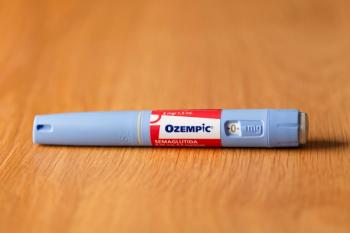
Belantamab mafodotin demonstrated benefits in overall survival in the phase 3 DREAMM-7 trial.

Belantamab mafodotin demonstrated benefits in overall survival in the phase 3 DREAMM-7 trial.

Rusfertide may sustain hematocrit levels in patients with polycythemia vera.

Harpreet Bhatia, MD, MAS, FACC, discusses emerging new approaches to lipid lowering therapies.

Abelacimab is an investigational, selective, fully human monoclonal antibody.

Rachel Chandra, PharmD, MPH, FASHP, shares insight into the VALOR-QI program.

Rachel Chandra, PharmD, MPH, FASHP shares methods for improving adherence to lipid lowering therapies discussed at the AHA 2024 Scientific Sessions.

Christian Ruff, MD, MPH shared the results of the AZALEA-TIMI 71 trial.

Leonard Egede, MD, MS, FACP discussed the association of historical redlining and contemporary structural racism on life expectancy.

Rebekah Walker, PhD raises awareness of the long-lasting health implications caused by historic redlining.

Milind Desai, MD, MBA shares insight into the REMS program for patients with obstructive hypertrophic cardiomyopathy.

Craig Beavers, PharmD, FACC, FAHA, FCCP, BCCP, CACP will be moderating a session about social determinants of health and heart failure.

These therapies represent an encouraging advancement in cardiovascular care.

According to the study, 20% of patients with myeloproliferative neoplasms progress to blast phase.

If accepted, daratumumab would be the first approved treatment for smoldering multiple myeloma.

Off-label semaglutide has been linked to serious adverse effects, calling for increased regulation around compounding.

The nomogram model demonstrated good predictive capabilities to assess progression risk to overt primary myelofibrosis.

Evidence shows that the agent is not an effective nasal decongestant.

Lerodalcibep is a novel, third-generation, anti-PCSK9 therapy small binding protein.

Increased bone marrow adiposity is associated with progression of monoclonal gammopathy of undetermined significance (MGUS) to multiple myeloma.

RBL is the first FDA-approved microbiota-based live biotherapeutic product for adults.

The novel therapy demonstrated safety and efficacy in a clinical trial.

Approximately 15% of patients with polycythemia vera will progress to myelofibrosis.

In the results, 31% of patients maintained undetectable measurable residual disease 4 years after treatment.

Following lung cancer diagnosis, adjusting lifestyle habits can improve treatment responses.

Targeted therapies, CDK4/6 inhibitors, and precision medicine are improving outcomes for patients with high-risk and metastatic disease.

Rising cancer rates and costs pose challenges in global oncology markets amid AI and targeted therapy breakthroughs.

Experts from Moffitt Cancer Center discuss the benefit of multidisciplinary teams in lung cancer care.

The 2024 NCODA International Fall Summit took place in Orlando, Florida, from October 23 to October 25.

Bisphenol A (BPA) is a chemical compound that is linked to various adverse health effects.

Liz Vogel, CPhT-Adv, CSPT, discusses the procedures and best practices for safe compounding of hazardous and non-hazardous drugs.